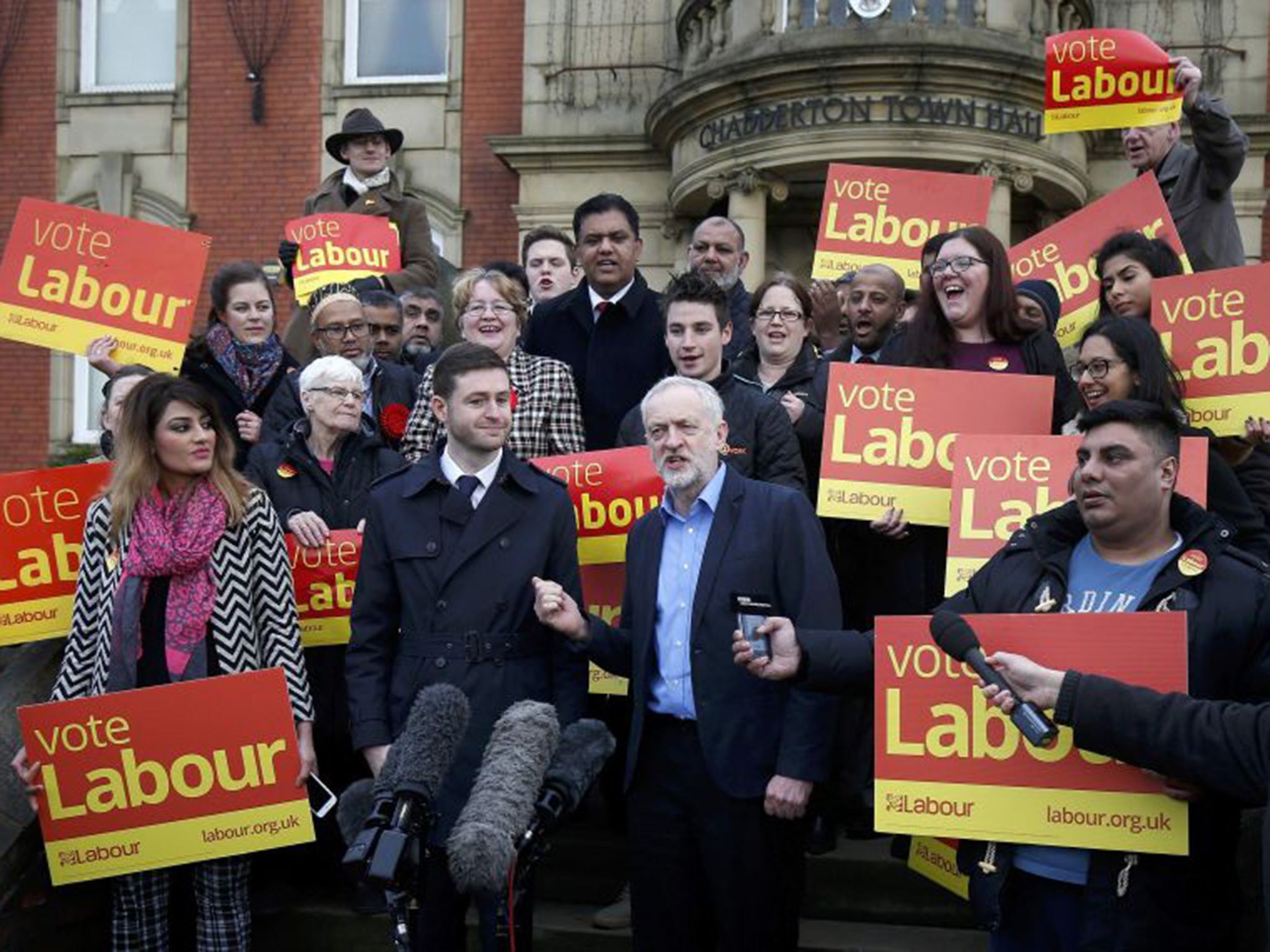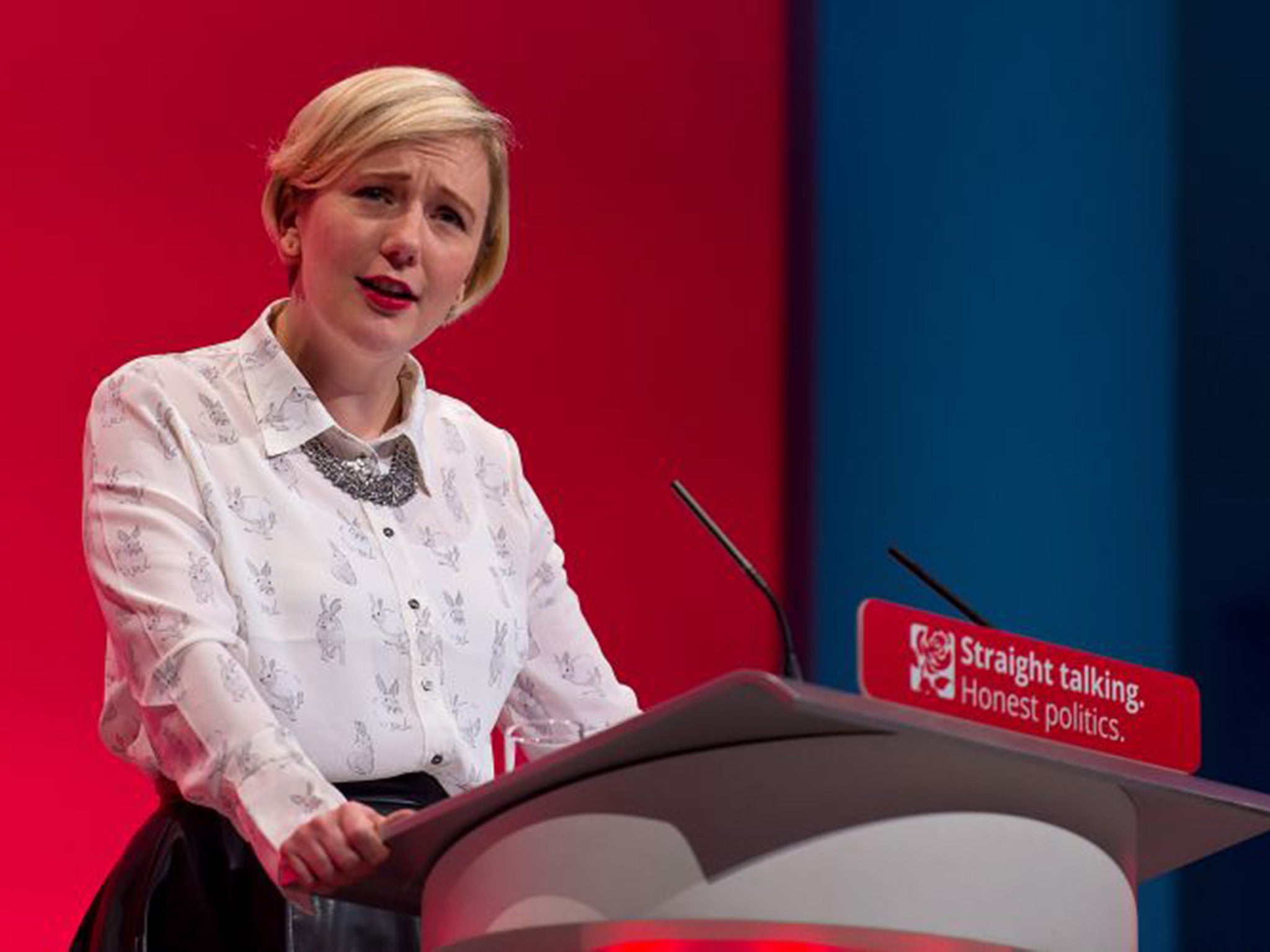Labour dominates the news with party more focused on fighting itself than the Tories
Inside Westminster: Under a nice man who promised 'a kinder, gentler politics', Labour has become the nasty party


Your support helps us to tell the story
From reproductive rights to climate change to Big Tech, The Independent is on the ground when the story is developing. Whether it's investigating the financials of Elon Musk's pro-Trump PAC or producing our latest documentary, 'The A Word', which shines a light on the American women fighting for reproductive rights, we know how important it is to parse out the facts from the messaging.
At such a critical moment in US history, we need reporters on the ground. Your donation allows us to keep sending journalists to speak to both sides of the story.
The Independent is trusted by Americans across the entire political spectrum. And unlike many other quality news outlets, we choose not to lock Americans out of our reporting and analysis with paywalls. We believe quality journalism should be available to everyone, paid for by those who can afford it.
Your support makes all the difference.When I treated myself to a few hours reading all last weekend’s newspapers, I did my usual thing of cutting out the articles I might need this week, making four piles on different subjects on my living room floor.
One pile of cuttings was about the allegations of bullying in the Conservative Party’s team of young campaigners. The next one, about George Osborne’s Autumn Statement, was surprisingly small, with less post-match analysis than usual as the media spotlight shifted swiftly on to Syria.
What I wanted to read most, ahead of an expected Commons vote on air strikes against Isis in Syria, was expert analysis of what such action might achieve. But a small crop of articles about that was dwarfed by a mountain of cuttings about the other war – inside the Labour Party.
It symbolised the whole week. The real story, about the gravest decision any prime minister can make – deploying our armed services – was eclipsed by the Opposition’s woes. Whenever David Cameron was under pressure, for example over his dodgy claim about 70,000 non-extremist fighters in Syria, he was let off the hook by Labour’s turmoil.
Even when Labour finally arrived at a position on air strikes – not to have one, and to allow its MPs a free vote – it did not stem the flow of damaging headlines. The ones about the split were hard to avoid, since there were honestly held views on whether or not to extend RAF bombing from Iraq to Syria. But Labour’s deepest wounds were self-inflicted.
By today, my cuttings file was bulging with articles about the intimidation and bullying of Labour MPs by anti-war activists. There was pressure before Wednesday’s Commons vote and then threats to deselect the 66 who backed Mr Cameron rather than Jeremy Corbyn.
In 34 years of covering politics at Westminster, I have occasionally witnessed physical intimidation of politicians – car tyres slashed, excrement through the letter box and so on. But the advent of social media has taken it to a new and dangerous level and it is poisoning our politics. It is immediate, very public and feeds on itself.
The Corbynistas say it is coming from both sides but I know of no abuse directed at MPs who voted against air strikes. I have spoken to tearful MPs having sleepless nights after being accused of being a “child killer” or “warmonger” on Twitter or sent pictures of dead children.
As it happens, I am not convinced that bombing is the right thing to do. But I am utterly appalled by the intimidation.
I am sure more Labour MPs would have backed air strikes if they had not faced such pressure. One MP claimed: “The intimidation worked. It was organised by Jeremy’s Facebook Army.” Another said: “It wasn’t a free vote. It was a bullied vote.”
Corbyn allies say that many of the social media attacks were posted by people outside the party. They may well be right. But the Labour leader may have unwittingly created a climate in which his followers believe such behaviour is acceptable.
He said before the vote there was “no hiding place” for MPs, which some interpreted as a green light for the anti-war brigade.
True, Mr Corbyn did send an email to party members saying Labour would not tolerate “abuse and intimidation, [which] have no place in politics.” But his critics claim he does tolerate it by not clamping down hard. They doubt that anyone will be expelled by Labour for such activities, even though his deputy Tom Watson suggested that could happen.
The actions of the Corbynistas speak louder than their words. The website of the Labour Representation Committee (LRC), which includes non-Labour members and is chaired by the shadow Chancellor John McDonnell, helpfully lists the Labour MPs “who voted to bomb Syria” and asks: “Is your MP here?”
The LRC held a meeting in Walthamstow to challenge the Labour MP Stella Creasy, who is threatened with deselection after voting for air strikes. Ms Creasy may see off her opponents by bravely standing up to them in public. She is one of our brightest rising political stars, and ran a brilliant campaign against payday loan companies which forced Mr Osborne to act. If Labour dumps her, then it really will have taken leave of its senses.

Mr Corbyn and Momentum, the grassroots movement which grew out of his party leadership campaign, insist they are not organising to deselect MPs. But they don’t need to: changes to parliamentary constituency boundaries, which will cut the number of MPs from 650 to 600, mean many will face reselection when seats are merged. Manna from heaven for left-wing activists. The ensuing battles will reinforce the image of a Labour Party more concerned with fighting itself than the Conservatives.
Labour already has a huge challenge in persuading voters it can be trusted on the economy and national security. Now the abuse and intimidation sends another damaging signal.
Only one person can stop the bullying – Mr Corbyn. But he may judge that it is not really in his interests to do so, as he seems keener on retaining power in the party than winning it in the country. Under a nice man who promised “a kinder, gentler politics”, Labour has become the nasty party.
Join our commenting forum
Join thought-provoking conversations, follow other Independent readers and see their replies
Comments